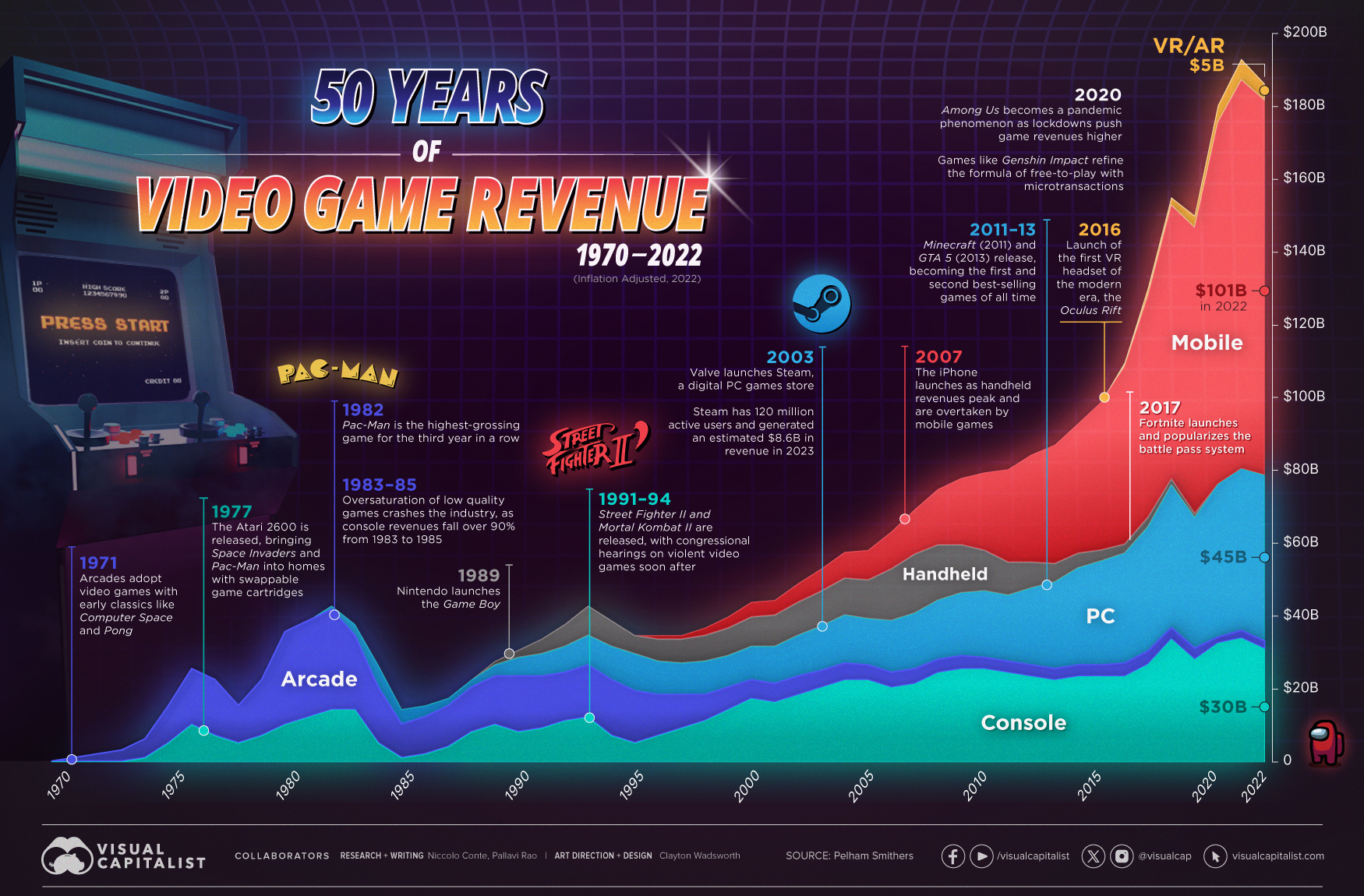We are excited to announce that Arch Linux is entering into a direct collaboration with Valve. Valve is generously providing backing for two critical projects that will have a huge impact on our distribution: a build service infrastructure and a secure signing enclave. By supporting work on a freelance basis for these topics, Valve enables us to work on them without being limited solely by the free time of our volunteers.
This opportunity allows us to address some of the biggest outstanding challenges we have been facing for a while. The collaboration will speed-up the progress that would otherwise take much longer for us to achieve, and will ultimately unblock us from finally pursuing some of our planned endeavors. We are incredibly grateful for Valve to make this possible and for their explicit commitment to help and support Arch Linux.
These projects will follow our usual development and consensus-building workflows. [RFCs] will be created for any wide-ranging changes. Discussions on this mailing list as well as issue, milestone and epic planning in our GitLab will provide transparency and insight into the work. We believe this collaboration will greatly benefit Arch Linux, and are looking forward to share further development on this mailing list as work progresses.
Spent a few hours today installing vanilla arch for the first time because of this. Loving it so far.
This comment is missing the mandatory “btw.” :(
Using OSS in your product and giving the OSS devs resources to improve their software, instead of trying to take over their project? Did Valve not get the memo that big tech companies are supposed to be evil?? Oh right, they have a monopoly on video game distribution and all of their products rely on DRM.
They have a monopoly on video game distribution.
They have a massive marketshare, but that doesn’t make them a monopoly. Developers are still free to distribute their games through any other storefront/launcher, and Valve isn’t going out of its way to engage in anticompetitive practices like exclusive publishing deals with third-party studios.
They also originated loot boxes (TF2)
they have a monopoly on video game distribution
Last I heard you could buy games from GOG or Epic and install them on a Steam deck produced and subsidized by Valve.
Last I heard you could buy games from GOG or Epic and install them on a Steam deck produced and subsidized by Valve.
Or get them on PlayStation, Switch, or Xbox (Earth Walker claimed Steam has a monopoly on video game distribution in general).
Or, you know, a simple installer from the dev’s website.
they have a monopoly on video game distribution
People who claim that Valve has a monopoly on PC games are already wrong but you claim that they have a monopoly on video game distribution in general is outrageously false. The 2022 overall video game revenue was a bit over US$180Bn. The PC game revenue was US$45Bn. In 2023, all of Steam was responsible for US$8.6Bn in revenue. The biggest PC games (Fortnite, Minecraft, Roblox) aren’t even on Steam and neither are any console or phone games.
Criticize Valve for actual things to criticize them for. Don’t spread misinformation.

And even if they had a monopoly (which I agree that they don’t), they have to actually abuse that monopoly to be a problem. Last I checked, the only requirement Valve has for games distributed on Steam is the devs can’t sell Steam keys for less elsewhere, but they can sell as many Steam keys as they want outside of Steam w/o paying Valve anything. They can also generate keys for other distribution platforms and price them however they want.
That’s extremely fair, and the fact that they’re able to maintain a dominant position in the PC games distribution market without any exclusivity agreements or anything of that nature speaks volumes to the level of service they provide for both users and publishers/developers.
I haven’t gamed on pc for quite some time, but I remember every gaming company adding “launchers” for their games that you had to run to install and play their games. Even Nvidia did this with their fucking drivers. :)
Valve doesn’t do any of that bullshit. Maybe that’s why gamers like them?
To be fair, weren’t Valve the first company to do that? People were really annoyed at having to install steam just to play some Half-Life.
Of course, that was only 1 launcher, no launcher-in-launcher shenanigans back then.
Yep, Valve also normalized microtransactions significantly through TF2.
Once again, Valve started it as something reasonable: Cosmetic options, then expanded to allow shortcutting unlocking alt weapons through $1-3 charges instead of through game progression (achievements unlocked alt weapons at first). Other companies followed suite in ever increasingly predatory ways, and Valve got worse with it too over time.
normalized microtransactions
I’d say it’s maybe a little more honest to say they normalized the gambling exploitation in gaming with the TF2 lootboxes.
You didn’t buy cosmetics, you bought a key to open a box that might get you the cosmetic you wanted.
I have many games I own on Steam that I can play portably from a flash drive without Steam. DRM is still on the developer.
“Monopoly”, other platforms are free to compete, Valve isn’t actively trying to stop them
Comment OP appears to have drank the Epic Games Kool-aid.
Comment OP appears to have drank the Epic Games Kool-aid.
The world’s biggest video game, Fortnite, is only available on Epic Games Store for most platforms. Epic’s market share is gigantic, other video game developers just don’t benefit of it because Epic promotes their own stuff first and foremost. If Epic had a storefront monopoly, it would be classified as anti-competitive behaviour.

You might be too young to remember, but DRM existed way before Steam, and the worse ones that exist today are the ones that the Devs/publishers add, not the steam one.
Remember Windows Live Games? Ah yes. Good ol’ GTA4 on PC.
I’m interested, yet that is also obviously unsearchable.
Sorry, meant Windows Live Games
“Games for Windows Live”
alright, time to wipe my Mint test/fun build and try out Arch. I don’t do much with Linux but it’s gonna be fun getting back into it. Who doesn’t love the smell of a fresh OS install
Archinstall is super easy. Just copy a few commands from the wiki to join a wifi network and then it will take everything from there.
Until you reach the part where you want to partition and encrypt your drives.
Endeavour just gets rid of the install headache
Garbage distro with a garbage community.
dannnnn
Care to elaborate?
https://fedia.io/m/[email protected]/t/1250293/Arch-Linux-and-Valve-Collaboration/comment/7534737#entry-comment-7534737
So the admins do their job and you had an issue
That doesn’t seem like a big deal
Punishing the person seeking help while doing jack shit to the people insulting & trolling while hiding the whole thing so others can’t see is certainly not how I want to see the moderation job to be done. But if you want to circlejerk with toxic trolls, then go right ahead.
The posts you had a problem with were deleted, what more can they do? Leaving them up just encourages that behaviour
That’ll be… quite the Leap. I haven’t done an Arch install, but the last time I did, it required a fair amount of reading since the installer doesn’t walk you through everything. It’s not hard per se, but it does take some time for the first install.
If you’re not super familiar with Linux, I recommend holding off on Arch. This isn’t coming from any form of elitism (I don’t use Arch anymore) or lack of experience (I used Arch for > 5 years), just from reading between the lines of what you said, which indicates that you’re probably not super familiar with Linux.
If you really want to do it, go for it! I think Arch is an absolutely fine distro, and I think there are a lot of good reasons to use it. I just don’t want someone who may be new to Linux to get frustrated and end up not having fun. So don’t let me discourage you, but also know what you’re jumping into: probably a couple hours of getting the base system installed, and maybe another hour or two of installing packages to get to a usable system.
man you weren’t kidding hahah. I appreciate everyone’s replies but I’ll definitely just leave Mint on there for now. I didn’t get past the install process when it asked about connecting to a Wi-Fi network. I did some commands but couldn’t find any networks, I think maybe a driver issue with my Wi-Fi adapter? ohh well
I still have the USB install drive if I’m feeling adventurous! and you’d be correct, I have little knowledge of Linux, I’ve only messed with a few simple distros like PopOS, Ubuntu, Mint, and another one I’m forgetting. I can’t even get Steam to start up on my Mint distro haha
Garuda can definitely get Steam working for you quickly, though it abstracts the system more so you may or may not find it harder to fix problems due to not understanding the jargon
Or he could try a arch distro like manjaro.
You mean endeavourOS. Manjaro has a bad record. There’s also a gaming-focused one called Garuda.
I like Garuda, but as someone who started with it it’s a maybe for a first distro. It’s beginner friendly except when it isn’t.
Exactly. Don’t use Manjaro, I argue that it’s less stable than Arch due to how updates are managed.
It’s really good news that there’s another company behind Wayland now.
RH frankly directs it against people using “marginal” setups and applications, thus less influenced by it, and not for some ambitious goal.
Valve tend to be well-meaning guys. Anyway, in this case it’s in their business interest to be well-meaning.
Valve is not well meaning. No large for-profit company is ever well-meaning. It’s merely the case that Valve’s best interest happens to align with those of the consumer, and they have decided that their business model is going to be to win over consumers’ loyalty through goodwill rather than milking them for every penny they can get. And they are very successful at this, seeing that there has still not arisen any serious competitor to Steam. That’s entirely because consumers are loyal to the platform. Valve provides a good service, consumers reward them with loyalty. It’s not friendship, but it’s symbiotic, which is as close as you can get to friendship in the harsh world of business.
Yada yada I think Valve is well meaning and I’m still to trust anything Microsoft does is well meaning. OpenAi is just the latest manifestation of how you could do things well but intentionally choose the evil path.
Man it sure is a good day to be both a Valve and Arch fanboy.
Some extra fun details from the staff discussions around this: Valve is not interested in control of the distro, but are mainly interested in funding work on projects that are chosen by Arch staff, and are already things that Arch staff wants to implement. The projects chosen are indeed things that Valve also want to be part of the distro’s infrastructure, but the process has been totally in the hands of Arch staff.
I gotta say, it’s been really cool to see Valve go through the process of considering OSS as not just a useful tool or worthwhile target, but as a robust collaborator.
First, they build and maintain their client on Linux, and build their games to run natively on Linux, learning that things aren’t actually as difficult as it’s commonly made out to be, and the things that are more difficult than they need to be can be fixed by working with and contributing to the existing community.
Then they consider building their own hardware, but try the half-way approach of building SteamOS on top of Debian, and depending on existing hardware vendors to build machines with SteamOS in mind, learning that there’s a lot of unnecessary complexity around both of those approaches to that goal.
Then they learn how to develop and build 1st party hardware with the SteamLink and Steam Controller.
Then they put the lessons from the Steam Machine project into practice by dumping loads of time and effort into Proton, knowing that they won’t have the market unless they can get Windows games to run on Linux in a reliable and seamless way.
Then they put all that knowledge and effort together to do the impossible: unite PC gamers of both Windows and Linux flavors under the banner of the SteamDeck, a fully gaming-focused, high-quality, and owner-friendly piece of kit that kicks so much ass that it single-handedly pulls a whole category of PC hardware out of obsurity and into the mainstream.
And what do they do with that success? Literally pay it forward by funding work on the free software that forms the plinth that their success stands upon.
Good on Valve.
Thanks; nice write up.
I love that you can even edit the boot logos. Always a treat to see another one every time.
as, you can randomize them? huh, ill have to look into it
If you place multiple files in the boot video folder you can select them in the system options
Does it even make sense to keep playing with a Manjaro VM or just go straight Arch?
Go endeavourOS if your first time. Manjaro has a bad track record, as shown at https://manjarno.pages.dev
Manjaro worked without issues for me for about 2 years, unlike EOS which broke within less than half a year and their forum is the most unhelpful and toxic clown show I’ve ever seen as they just insulted me to the point where the admins closed the thread and said I should make a new one if I still need help - hiding it in the process so it won’t get indexed and shine a bad light on them. So I find the Manjaro hate very unwarranted and it seems to get way more hate than it deserves. Most of it is just a bunch of “what if” scenarios that never happened.
Could you link to the thread? I had a good experience with the forums. It sounds like they locked it to prevent people from sending more bullying comments and suspended everyone.
Most of it is just a bunch of “what if” scenarios that never happened.
The link lists a bunch of things that did happen, along with the thing on partial upgrades, which is guidance on the Arch wiki.
https://forum.endeavouros.com/t/grub-boot-error-after-update/42928/31
 They were at least still able to write in other places. And given that experience I of course did not follow up with another thread, just to experience the same thing.
They were at least still able to write in other places. And given that experience I of course did not follow up with another thread, just to experience the same thing.The link lists a bunch of things that did happen, along with the thing on partial upgrades, which is guidance on the Arch wiki.
It lists a bunch of inconsequential things when it comes to the distro. The worst were the pamac DDOSing incidents. The SSL certificates of their websites I really don’t give a damn about but people then keep saying “yeah but if they are sloppy there then…”, without being able to provide examples where the distro was ever affected by it. They also keep arguing about the packaging on the AUR potentially being newer than the ones in Manjaro and thus potentially causing breakage, which is a weak argument - especially with how sloppily a lot of AUR packages are maintained. And if you’re super paranoid, just update the AUR when Manjaro updates.
Overall, hating on it feels like it became more of a meme with little substance, fueled by the general entitlement and elitism within the Linux community regarding their favorite distros.
And given that experience I of course did not follow up with another thread, just to experience the same thing.
If they had commented in the new thread, suspension would be definite. IMO, locking it would be a good choice, since if that user commented on the new thread, they’s very likely to be stalking you and have a concrete reason to get punished. I’m sure the only disruptive user got a formal warning.
As for being unable to report, that’s because of default policies by Discourse, the forum software used by EOS: You can only flag posts after reading 30 posts across 5 topics for 10 minutes. The Manjaro forums use the same forums and configuration. (Not as in exactly the same, just the same on this front.)
It lists a bunch of inconsequential things when it comes to the distro.
You seem to have skipped over the part about shipping the M1 kernel 3 days after its first demo with bugs. They then PR’d a commit they obviously did not understand to archlinuxarm, a much smaller project unaffilated with ARM, causing breakage. This was in October 2022.
The SSL certificates of their websites I really don’t give a damn about but people then keep saying “yeah but if they are sloppy there then…”, without being able to provide examples where the distro was ever affected by it.
The SSL certificate expiring means you are not able to connect to Manjaro servers to update anything. No Manjaro packages at all can be upgraded or installed while the SSL certificate’s expired. That’s pretty big.
And if you’re super paranoid, just update the AUR when Manjaro updates.
But when Manjaro gives you updates from two weeks prior, AUR gives you new updates from today.
Holding updates does not make the system more secure
Holding all updates for two weeks is just a dumb design choice:
- If the concern is breakages, you’ll still get the breakages, just two weeks later.
- Arch Linux already holds updates to core packages, to packages with wide impact, and that are expected to risk breakage.
- Aforementioned deal with partial upgrades. The 2-week long period pretty much guarantees that AUR packages in need of bumping their library versions will have updated before you receive the library update yourself.
They do have a different testing system now—with a good justification of being quite a different system from Arch—where all updates are pushed to a test branch and errors are caught, supposedly. I say supposedly because that did not stop the AUR being DDOS’d for the 2nd time under the same exact system in 2021.
This is all on top on the fact that Manjaro has officially said that they are not Arch, albeit based on Arch. Though at the end of the day, anyone is of course free to use whatever they wants. Manjaro has done some wonderful work for everyone. It’s just I need to wait until at least 2028 to trust it.
I’ve been very happy with my Manjaro install on AMD GPU, everything worked out of the box on fist try install without any weird step. I would say you could jump straight to Arch/Arch-based, but first research about your GPU compatibility.
(I’m aware of how Manjaro is perceived and its downsides, please avoid comments suggesting me to switch).
I’m just waiting for some FOSS purist to find fault in this.
FOSS purists are too busy malding over systemd, and Steam being proprietary DRM, and games being closed-source.
I use OpenRC, and play OpenTTD, OpenRA and Tux Racer.
OpenTTD is on Steam, btw
Don’t you play cdda?
Not really, I might give it a go.
Though I’m not sure it’s a game for me.
Leaving the others aside, the last one is quite unsurprising considering the meaning of the acronym…
Steam being proprietary DRM, and games being closed-source.
Better not tell anyone about DRM-free open source games on Steam then. Wouldn’t wanna burst anyone’s bubble.
I want to give the perspective that from a technical standpoint, even free games on steam require the steam client to install and while the license to play the game is free steam is licensing your account to own the game. The game doesn’t require steam after that and usually this means the game is available elsewhere, but for the specific case of “free games on steam”, steam is still acting to manage digital rights.
even free games on steam require the steam client to install
That’s not exactly DRM though, that’s just only supporting one distribution method.
You have to use GOG’s servers to get games you purchased from them as well, that doesn’t make that DRM, it just means that’s the only distribution method they support.
To me, DRM has absolutely nothing to do with delivery, it’s all about use once you have it.
If we’re talking about Digital Rights Management, steam is acting in that role to manage your digital rights on the steam platform. They could allow you to download games without requiring an account login or client download, and they instead do not. They could allow you to download free games from the client or the website without requiring a login, and they do not.
GOG’s website is also DRM for the same reason. It won’t allow you to download games that aren’t licensed digitally to your account, including free games. GOG has DRM-free games and installers fairly universally beyond that first check, and that means you can download them from alternative sources, but downloading from GOG 100% requires interacting with DRM.
To be direct: I don’t care that Steam is DRM because it’s minimally invasive and I currently trust Valve enough to use an operating system made by them as a daily driver. There are very few companies I’d say that about.
The Steam client is DRM at its core, even if it’s acceptable DRM. I think it’s important not to allow your thinking to shift from the reality that it is DRM just because it’s personally acceptable.
I don’t mind it, I will simp for Valve all day long, and if a company requires you to log in to an account with their server to check whether your account has the digital entitlement to then allow you to access a file or not, that’s digital rights management.
When people say “DRM,” they almost always mean the check when the game launches, not the one-time license check when you download a game. Whether they use their Steam platform or a webpage, I honestly don’t see much of a difference, provided you end up with a DRM-free product at the end.
But yes, technically Valve is verifying that you own the game, but it’s not really what is meant when the average person says “DRM.”
The game doesn’t require steam after that and usually this means the game is available elsewhere
Means you can also zip the folder and archive it for later.
They do still have some basic protection. Steam’s default, loose, DRM requires you to launch Steam when you open a game’s executable.
No, definitely not. When games don’t integrate SteamWorks features such as friends lists (or were written by people who accounted for the features to just not be available instead of outright failing), they don’t need Steam.
When the games use GPLed engines, Steam integration may not be legally possible anyway.
Off the top of my head I can immediately name Krita, the painting app by KDE whose Steam release has no Steam integration and runs just fine without.
Yesnt. I certainly played games on school pcs (Like HL2, Hotline Miami 2. Other students played Binding of Isaac and other smaller or rogue-like) and only with executables I got from Steam.
That may have been earlier than Steam’s DRM. Nowadays you need to copy a steam emulator (a few DLLs) into the executables folder as well before sharing.
systemd controversy was never about purism. It was about some piece of software unasked for by the majority of users, including absolute majority of desktop users, being pushed with juvenile means and those disliking that being called words like “luddite”.
It still is, believe me or not, I probably wouldn’t find anything wrong in systemd (or pulseaudio, or Gnome 3) were it not pushed with that arrogant Apple or MS like approach of “we’ve rolled out this new feature in our system, and you’re a weirdo”.
Same reason I liked the very theoretical idea of something like Wayland, but Wayland itself I don’t want to even try. Except for the possibility of something like CWM existing for it, that I can set up in 15 minutes with 20 lines of config file without levels of brackets etc (there is actual research as to how many levels various primates can process, chimps can’t go above 3, and I’m apparently as intelligent as a chimp, because neither can I in practice, but so is Linus Torvalds with his famous quote about more than 3 levels of indentation ; the issue is that I don’t want to strain my mind with that either when with a few X11 window managers I don’t have to). There’s none I’ve found yet.
Their politics trouble me. The technical parts may be sometimes arguable, but what isn’t, our world is created with mistakes as building blocks. But I’ve started using Unix-like systems for the feeling of freedom and patience, and while RH stuff doesn’t take away the former, it infringes on the latter.
While I agree with the politics part (especially the notorious suspend-then-hibernate thing), I do see why a lot of devs would ask for systemd-init: to just bundle 1 kind of service instead of a gazillion. Same thing with Flatpak and not needing to build a gazillion binaries for every distro that hasn’t packaged you, even though FLatpak’s sandboxing away from native libraries is something I just don’t like.
I do see why a lot of devs would ask for systemd-init: to just bundle 1 kind of service instead of a gazillion
How would that work? There were N init systems with one “main” one, now there are N+1 init systems with one “main” one, just different.
Anyway, init systems for developers being problematic seem for me a nonexistent problem. Writing a systemd unit takes less time than writing this comment with tea and buckwheat with milk as a distraction. Writing a sysvinit script takes something like that too. Same with BSD inits. Same with openrc.
While combined they take some time, packagers can do that. And even if they can’t, time spent trying to persuade others that systemd makes things easier is orders of magnitude bigger than time spent writing service scripts\templates\units.
As per Arch wiki
Arch is a pragmatic distribution rather than an ideological one.
If you’re a FOSS purist, you shouldn’t run Arch ethier way, because providing proprietary software for those who want it is one of the core principles of Arch.
You can use Parabola instead, which is basically FOSS-only Arch. This funding would likely also benefit Parabola indirectly.
hell yeah
Actually huge news. Linux as a whole benefits and needs more of this imo.
I hope it ends up similar to OpenSUSE’s OBS, or even better, that they can reuse a lot of the work OBS has done. I use it and think it’s fantastic.
I use Steam btw
Valve are such Chads.
It’s stuff like this that restores my faith in humanity.
Along with the recent Frog Wayland stuff, I’m happy to see Valve is gonna help linux desktop again lol.
From reddit:
Anybody remembers Linus saying “I hope Valve comes and fixes the packaging issue on Linux”? (yeah, on that ancient DebConf)
I hope Valve comes and fixes the very slowness of anything Wayland.
I just heard of Frog today, and I don’t really like it. It just seems like bypassing review. I like the competing proposal of experimental wayland protocols (merged into repository as “experimental” and iterative if 2 weeks pass without anyone opposing) much better.
After 15 years of wayland development hell, I’m honestly open to anything. Problem is I can definitely see an experimental branch being just as scrutinized. One of the core issues highlighted was that features and requests were rejected because of hypotheticals and the maintainers trying to avoid fragmentation like early Xorg.
Basic features from X11 are still missing. Everyone ended up somewhat fragmenting anyway via compositors because weston wasn’t really useful for developers beyond a demo. Wayfire started out as a Compiz redux and now its being considered by several DEs like XFCE to be the default compositor which they should standardize around.
Regardless, I really hope they nail it down in the next year because the halfway migration to wayland is seriously harming Linux desktop, especially when lots of frontend UI has been done perfectly decades ago on X11, and wayland still not properly supporting new features like HDR.
Great news! Crazy to think that Valve is hijacking/liberating the Windows gaming library. You would think that Microsoft would be doing more to prevent this.
don’t jinx it
Ha ha 😂
Valve has enough lawyer money to keep Microsoft at bay.
They kind of tried with UWP apps in the Microsoft Store, but they didn’t catch on.


















